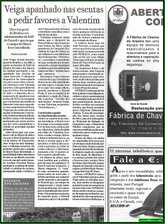Spanish authorities are investigating the recent deaths by poisoning of more than a dozen dogs in Lérida, a city in the northeastern region of Catalonia that has become ground zero in an intensifying debate over the role of Islam in Spain.
All of the dogs were poisoned in September (local media reports here, here, here, here and here) in Lérida's working class neighbourhoods of Cappont and La Bordeta, districts that are heavily populated by Muslim immigrants and where many dogs have been killed in recent years.
Over the past several months, residents taking their dogs for walks have been harassed by Muslim immigrants opposed to seeing the animals in public. Muslims have also launched a number of anti-dog campaigns on Islamic websites and blogs based in Spain.
In July, two Islamic groups based in Lérida asked city officials to regulate the presence of dogs in public spaces so they do not "offend Muslims." Muslims are demanding that dogs be banned from all forms of public transportation including all city buses as well as from all areas frequented by Muslim immigrants.
Muslims in Lérida say the presence of dogs violates their religious freedom and their right to live according to Islamic principles.
Dogs are not the only Islam-related controversy in Lérida, where 29,000 Muslims now make up around 20 percent of the city's total population.
In September 2010, Watani president Mourad El-Boudouhi submitted a letter to the Lérida city council in which he asked the mayor to provide him with free land so that he can build a mosque in downtown Lérida. The mosque would be financed by Morocco.
The Moroccan mosque would compete with another mosque project in Lérida that is being financed by Saudi Arabia. The imam at the Saudi mosque is Abdelwahab Houzi, a Salafi jihadist preacher who adheres to the radical Wahhabi sect of Islam.
Salafism is a branch of revivalist Islam that calls for restoring past Muslim glory by forcibly establishing a universal Islamic empire (Caliphate) across the Middle East, North Africa and parts of Europe such as Spain, which Salafists view as a Muslim state that must be re-conquered for Islam.
Much of Spain was ruled by Muslim conquerors from 711 and 1492; Salafists believe that the territories the Muslims lost during the Spanish Reconquista still belong to them, and that they have a right to return and establish their rule there – a belief based on the Islamic precept that territories once occupied by Muslims must forever remain under Muslim domination.
The Salafist Houzi has called on Muslims who are eligible to vote in Spain to support Catalan separatist parties as a means to firmly establish Islamism in Catalonia.
"Muslims should vote for pro-independence parties, as they need our votes. But what they do not know is that, when they allow us to vote, we will all vote for Islamic parties because we do not believe in left and right. This will make us win local councils and as we begin to accumulate power in the Catalan autonomous region, Islam will begin to be implemented," Houzi said.
The Catalan independence movement supports the independence of Catalonia from Spain. Catalan separatism is based on the idea that Catalonia is a nation with its own unique history, culture and language.
In an effort to promote the Catalan language, Catalonian pro-independence parties have traditionally favored immigration from non-Spanish-speaking countries, especially from Arabic-speaking Muslim countries, in the belief that these people would speak Catalan rather than Spanish.
The end result of this decades-old policy is that Catalonia is now home to a huge concentration of hard-line Islamist groups including Hizb ut-Tahrir al-Islami and the Salafists.
Salafi preachers in Catalonia do not believe in democracy and teach that Islamic Sharia law is above Spanish civil law. They also promote the establishment of a parallel Muslim society in Spain.
Salafi imams have set up Sharia tribunals in Catalonia to judge the conduct of both practicing and non-practicing Muslims in Spain. They also deploy Islamic "religious police" in Lérida and other Catalan municipalities to monitor and punish Muslims who do not comply.
In another case, a Salafi imam in Tarragona was arrested for forcing a 31-year-old Moroccan woman to wear a hijab head covering. The imam had threatened to burn down the woman's house for being an "infidel" because she works outside the home, drives an automobile and has non-Muslim friends. In an effort to prevent "a social conflict," in August a local court absolved the imam of all wrongdoing.
The Salafi movement in Spain is based in the Catalonian city of Tarragona, but Salafi Islam also has a major presence in the Catalan municipalities of Badalona, Calafell, Cunit, El Vendrel, Girona, Lleida, Mataró, Reus, Roda de Bara, Rubí, Salt, Santa Coloma de Gramenet, Sant Boi, Torredembarra, Valls, and Vilanova, not to mention Barcelona, which hosts five Salafi mosques.
Catalan police say they prevented forced marriages in metropolitan Barcelona (6), Girona (4), central Catalonia (2), the western Pyrenees (1) and Tarragona (1). The girls at risk from genital mutilation were in metropolitan Barcelona (19), Girona (4) and Lérida (1).
Not surprisingly, some Catalans are having second thoughts about Muslim immigration. The Catalan nationalist party Plataforma per Catalunya (PxC), which has some 70,000 active members, is opposed to any further Muslim immigration.
PxC is also leading opposition to the construction of a Salafi mega-mosque in the Catalan town of Salt. PxC spokeswoman María Osuna says the party does not want Salt to become "the new Mecca of the most radical Islamism."
For its part, the Catalan regional government has discovered that Muslim immigrants are not all that interested in learning the Catalan language. In an effort to promote Catalan, the Catalonian Bureau of Religious Affairs recently published a guidebook in Arabic and Catalan called "Salam al Català."
The guide aims to bring the Catalan culture to Muslims to "show the bonds that historically have existed between both realities, and bring the [Catalonian] language to the Arabic-speaking Muslim population."
Read more at www.hudson-ny.org |































.jpg)







































.jpg)









0 comentários:
Enviar um comentário